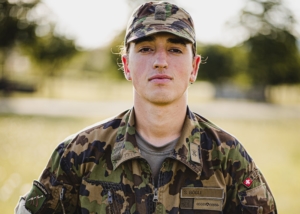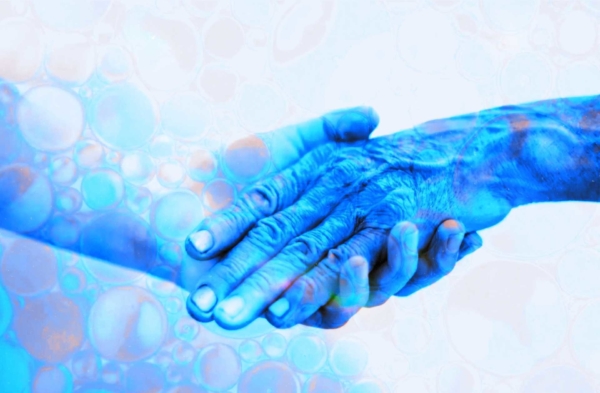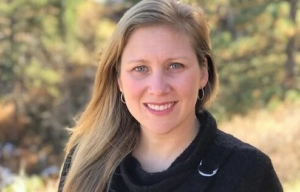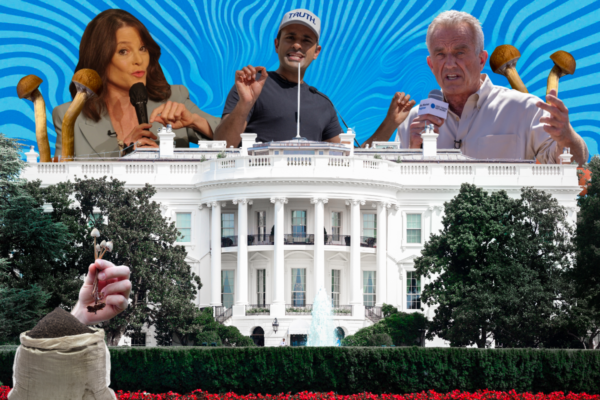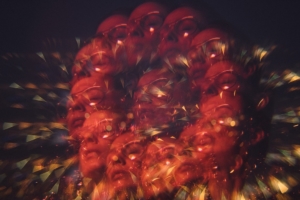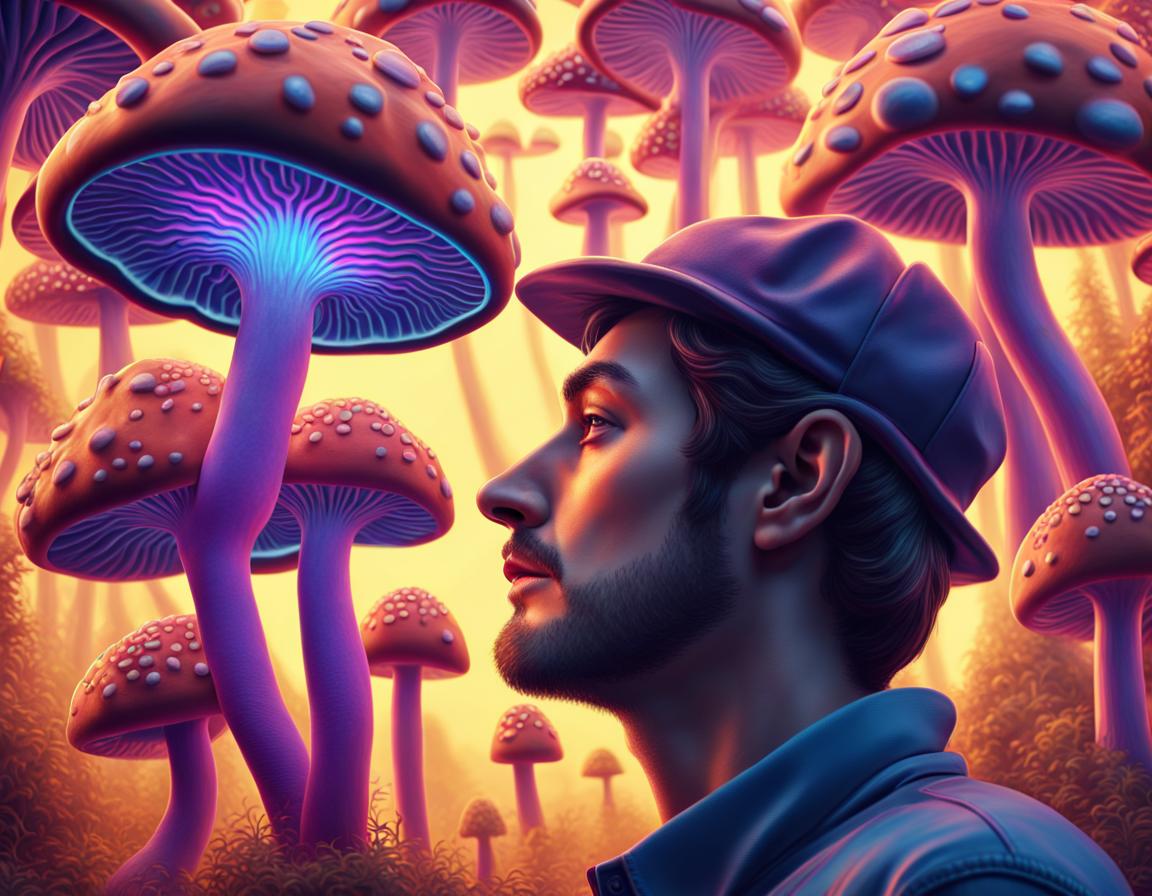
Psychedelic experiences can be life-changing. But this isn’t always a good thing for those users having distressing and sometimes plain terrifying experiences, often labeled “bad trips.”
However, a recent study has found that using narrative work and storytelling — put simply, talking about the experience afterward — can reframe what is initially perceived as a negative experience into a positive one and facilitate the continued use of psychedelics even after a negative experience.
The study, published in the International Journal of Drug Policy earlier this year, was based on qualitative interviews with 50 Norwegian psychedelic users. Most participants had used psychedelics between 10 and 50 times. Almost all of them had frightening experiences when using psychedelics, commonly a loss of sense of self and ego dissolution, often resulting from high doses of psilocybin, LSD, or DMT.
The authors suggested that exploring the narrative work that bad trip stories do in the aftermath of such an experience may provide useful insights. “Stories are not just ‘talk.’ They are powerful and have real therapeutic effects,” the researchers said. “The trauma literature has recognized that narrative mechanisms are essential in coping with trauma and other unpleasant experiences.”
“Thus, some of the paradoxical effects of bad trips, that something bad can be good may be explained by the narrative work that takes place after the experience itself, in and through storytelling.”
Giving a Frightening Experience New Meaning
An analysis of all 50 interviews, which lasted two to three hours each and focused on the participants’ use of psychedelics, found that while almost all participants had experienced frightening “bad trips,” they believed these were important experiences resulting in deep insights. “Although sometimes hesitant to use the term itself, bad trips were typically narrated as valuable, sometimes as an important turning point in a larger life history,” the researchers said.
They concluded that bad trip stories do important narrative work for psychedelic users. “They establish the narrators as credible drug culture insiders, draw boundaries to outsiders, and uphold a community of users,” the researchers said. “Their most important job is to make sense of confusing experiences and transform scary and unpleasant experiences into something good. Bad trip stories also gave users an opportunity to delve into ambiguous life stories and relationships, as well as raise and discuss existential and moral questions.”
The researchers also noted that narratives could influence the future, as well as the past. “From this perspective, narratives are constitutive; we act upon our stories, that is, they are fundamental in understanding why we continue certain behaviors,” they said. “These stories make it easier, or at least more likely, to continue the use of psychedelics. When even bad experiences become good, an important threshold against psychedelic drug use disappears.”
Is There No Such Thing as a ‘Bad Trip’?
Evidence supports the idea that the possibly unpleasant nature of psychedelic experiences is an integral part of its therapeutic benefits.
The Fireside Project is an organization that aims to help people maximize the potential of their psychedelic experiences, with their work including operating a free Psychedelic Peer Support Line designed to provide peer support for current or past psychedelic experiences.
Speaking about the study’s findings, the organization’s Co-Founder and Director, Joshua White, tells Psychedelic Spotlight that he believes any psychedelic experience is an unparalleled opportunity to learn.
“We prefer not to use the term ‘bad trip’ — psychedelics are non-specific amplifiers of the consciousness,” White explains. “Sometimes what arises during psychedelic experiences are encounters with the parts of ourselves that we have suppressed or attempted to suppress.”
“By getting to know every part of ourselves, we can hopefully work towards acceptance and ultimately love. This can certainly be terrifying, but far from being ‘bad,’ it can be an unparalleled opportunity for learning.”
White says reframing “bad trips” as difficult ones can invite people to learn from them rather than reject them.
“Part of what’s important going into a psychedelic experience is the awareness that difficult material may arise, but that when it does, we should attempt to turn towards it with curiosity and compassion,” he explains. “We love the Stan Grof quote that says psychedelics are to the mind what the microscope is to biology and the telescope is to astronomy. Seeing the experience as an opportunity to learn rather than a bad thing that occurred can help unlock its meaning.”
How to Navigate a Difficult Psychedelic Experience
White’s advice for a person having a difficult psychedelic experience is to reach out for support, including from friends, family members, a therapist, an integration circle, or a peer-support volunteer on the Psychedelic Peer Support Line.
“Our goal on the Psychedelic Peer Support Line is to meet people wherever they are and provide a safe, non-judgemental space for a person to turn towards their experience,” White says. “We have no other goal than to be, as Ram Dass says, a loving rock.”
He explains that providing peer support through a difficult experience looks different from call to call. “Sometimes it can mean suggesting that a caller adjust their setting — find a blanket, change the music, get some water, and so on,” he says.
“Building trust and connection is also essential. This can happen by assuring the person they’re no longer alone and normalizing and validating their experience. Reflective listening can also be an important part of creating a safe space because it tends to encourage people to observe their experience rather than run from it.”
He adds that there are multiple steps a person should complete to prepare for a psychedelic trip, noting that the Fireside Project does not recommend that anyone engage in any illegal conduct, including the use of psychedelics.
“Some of these steps include testing their substance (we recommend DanceSafe), learning about any contraindications, educating themselves about the substance they plan on taking including proper dosage, and finding someone to tripsit for them because tripping alone is risky, carefully thinking about their set and setting, cultivating a sense of reverence for the substance they plan on taking, setting an intention, and making time for integration after,” White suggests.
